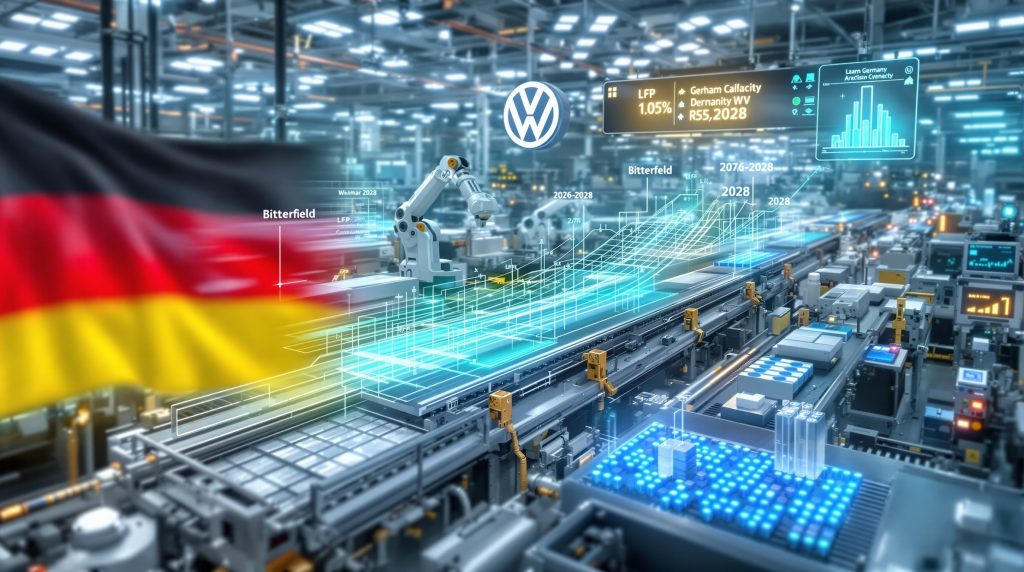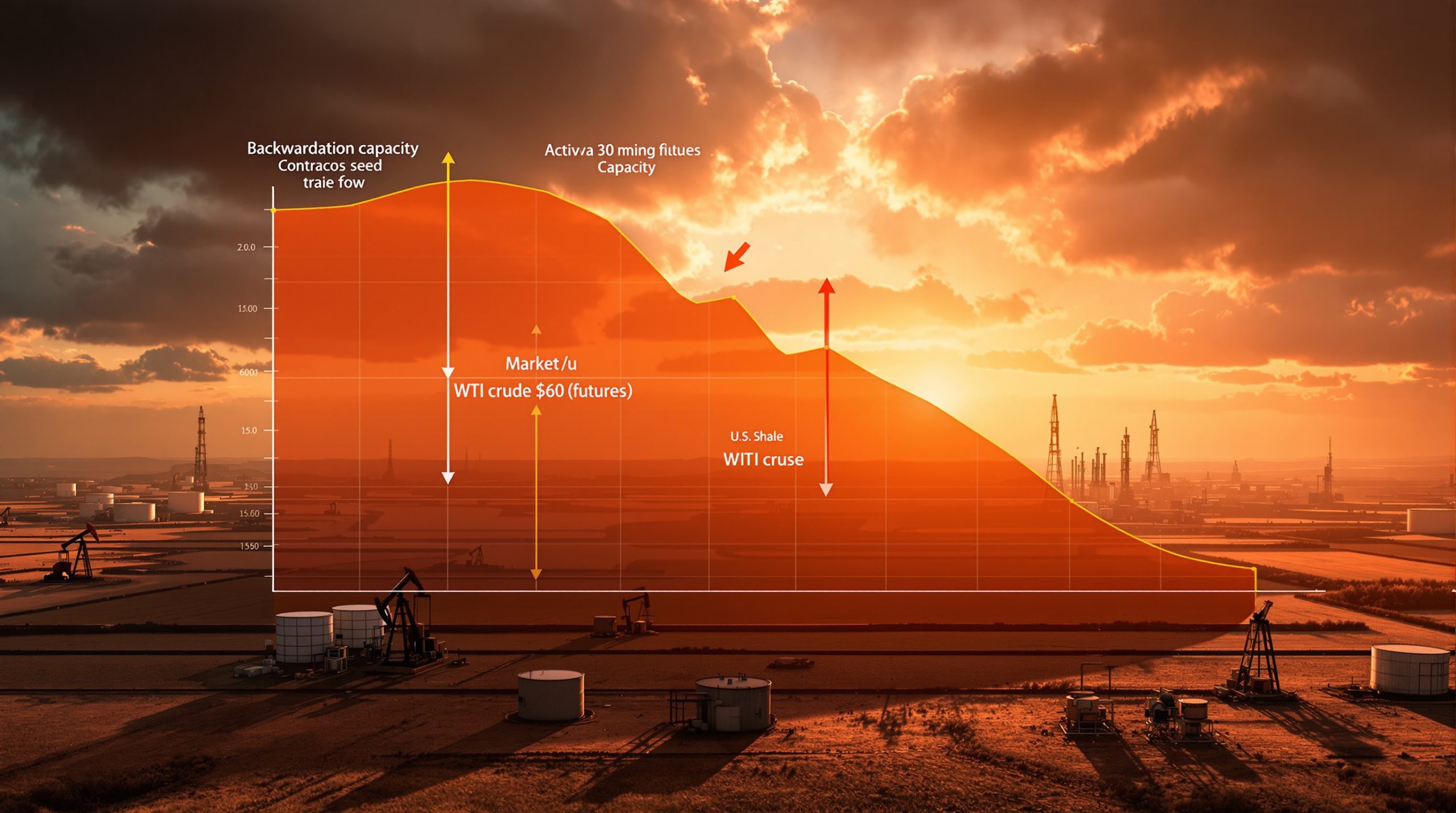IBU-Tec and PowerCo Battery Supply Deal: Reshaping European Battery Production
The strategic partnership between IBU-Tec Advanced Materials and PowerCo marks a pivotal moment in Europe's battery manufacturing landscape. This collaboration, focused on lithium iron phosphate (LFP) cathode material production, represents a significant step toward reducing European dependence on Asian suppliers while establishing a resilient domestic battery supply chain. As EV market transformation accelerates across the continent, this alliance positions both companies at the forefront of the European battery revolution.
Transforming European Battery Manufacturing
The IBU-Tec and PowerCo partnership addresses a critical gap in Europe's battery production ecosystem. Currently, Europe accounts for less than 5% of global LFP cathode material production, with China dominating approximately 90% of this market. This severe imbalance has created significant supply chain vulnerabilities as European automakers transition to electric vehicles.
European battery demand is projected to surge from 250 GWh in 2023 to an estimated 1,200-1,500 GWh by 2030, representing a compound annual growth rate exceeding 30%. This explosive growth underscores the strategic importance of developing domestic production capacity for critical battery components.
The European battery market, valued at approximately €11.8 billion in 2023, is expected to reach €250-270 billion by 2030. Despite this tremendous growth potential, Europe currently imports about 87% of its lithium-ion battery cathode materials from Asia, primarily China, South Korea, and Japan.
By establishing local production of LFP cathode materials, IBU-Tec and PowerCo will help reduce this dependency while creating a more resilient and sustainable battery metals investment chain. This aligns perfectly with the European Commission's Strategic Action Plan on Batteries, which aims to build a competitive and sustainable battery ecosystem in Europe.
Key Components of the IBU-Tec and PowerCo Agreement
The partnership between IBU-Tec and PowerCo encompasses three critical elements: a production contract, a joint development agreement, and a long-term supply commitment.
Production Contract Details
The initial production contract outlines IBU-Tec's commitment to manufacture LFP cathode materials for PowerCo beginning in 2026 at its Weimar facility. The agreement targets full utilization of IBU-Tec's current production capacity of over 3,000 tonnes annually by 2028.
This initial three-year production agreement represents a mid-double-digit million euro value, providing IBU-Tec with a significant revenue boost between 2026 and 2028. To put this capacity in perspective, 3,000 tonnes of LFP cathode material can support approximately 60,000-75,000 electric vehicles annually, assuming average battery pack sizes of 50-60 kWh.
Joint Development Agreement
Beyond manufacturing, IBU-Tec and PowerCo will collaborate on developing an industrial manufacturing process specifically tailored for European LFP cathode material production. This technical cooperation aims to optimize production efficiency, enhance material quality, and establish manufacturing processes that meet the stringent requirements of automotive applications.
The joint development focuses on creating processes that achieve consistent particle size distribution, precise iron-to-phosphate ratios, and optimal carbon coating thickness – all crucial factors for high-performance LFP batteries. This collaboration will leverage IBU-Tec's materials expertise and PowerCo's battery system knowledge to create truly European battery technology.
Long-Term Supply Commitment
Perhaps most significantly, the partnership includes a ten-year exclusive supply agreement following IBU-Tec's capacity expansion. Under this arrangement, PowerCo has secured the entire volume of LFP cathode materials from IBU-Tec's expanded production facilities for a decade.
This long-term commitment provides PowerCo with guaranteed access to critical battery materials while giving IBU-Tec the stability needed to justify substantial capital investments in manufacturing infrastructure. This mutual benefit exemplifies the type of strategic partnership required to develop Europe's battery ecosystem.
The Critical Bitterfeld Expansion
A cornerstone of the partnership is IBU-Tec's planned manufacturing expansion at its Bitterfeld site in Saxony-Anhalt, Germany. This new production facility will increase IBU-Tec's battery material capacity approximately five-fold from its current levels.
Production Capacity Enhancement
Construction of the new Bitterfeld facility is scheduled to begin in 2025, with completion targeted by 2028. When fully operational, this expansion will increase IBU-Tec's annual LFP cathode material production capacity from over 3,000 tonnes to approximately 15,000+ tonnes per year.
This expanded capacity represents a significant contribution to Europe's battery material production capabilities, potentially supporting 300,000-375,000 electric vehicles annually. The investment signals both companies' long-term commitment to European battery manufacturing independence.
Strategic Location Benefits
The Bitterfeld-Wolfen site offers numerous strategic advantages for battery material production. Located in the Chemiepark Bitterfeld-Wolfen, one of Germany's largest chemical industry clusters, the facility benefits from established infrastructure, chemical industry expertise, and integrated supply chains. The chemical park hosts over 300 companies with approximately 10,000 employees in chemical and related industries.
Geographically, Bitterfeld is ideally positioned to serve Germany's automotive manufacturing hubs. The site is approximately 150 km from BMW's Leipzig production facilities, 280 km from Volkswagen's headquarters in Wolfsburg, and 350 km from Dresden's automotive supplier ecosystem. This proximity minimizes transportation costs and supply chain complexity.
Economic Impact
The Bitterfeld expansion will deliver significant economic benefits to a region that has historically faced economic challenges. Saxony-Anhalt had an unemployment rate of 7.1% as of September 2024, above the German national average of 5.9%. The investment will create high-quality manufacturing jobs while supporting broader regional development.
Beyond direct employment, the project will generate economic activity throughout construction and ongoing operations, contributing to Germany's industrial strategy of developing high-value manufacturing in former East German regions. The facility represents the type of future-oriented investment needed to revitalize traditional industrial areas.
Market Factors Driving the Strategic Alliance
Several powerful market forces are propelling this partnership forward, creating both opportunities and urgency for European battery material production.
Electric Vehicle Market Growth
European EV sales reached approximately 3.2 million units in 2023, representing 21% of total new car registrations. This market share continues to grow as automakers expand their electric vehicle offerings and consumers increasingly embrace electrification.
The European Commission's "Fit for 55" package sets ambitious targets for transportation decarbonization, aiming for at least 30 million zero-emission vehicles on European roads by 2030. These regulatory pressures, combined with improving electric vehicle performance and expanding charging infrastructure, are accelerating the transition away from internal combustion engines.
Supply Chain Security Concerns
Recent global events have highlighted the vulnerability of extended international supply chains, particularly for critical components. The European battery industry's dependence on Asian suppliers creates significant risks as demand surges.
China currently controls approximately 60% of global lithium refining capacity, 65% of cobalt refining, and 85% of battery-grade chemicals processing capacity. This concentration of critical minerals energy transition presents both economic and geopolitical challenges for European manufacturers.
Recognizing these vulnerabilities, the EU Critical Raw Materials Act, adopted in March 2024, sets targets for EU processing capacity of at least 40% of annual consumption for strategic raw materials by 2030. The IBU-Tec and PowerCo partnership directly supports this objective by establishing European processing capabilities for battery materials.
LFP Technology Advantages
LFP battery chemistry offers several compelling advantages that are driving its adoption across various vehicle segments:
-
Cost-effectiveness: LFP cathode materials cost approximately $6-8 per kilogram compared to $12-15 per kilogram for NCM (nickel-cobalt-manganese) cathodes, significantly reducing battery pack costs.
-
Enhanced safety: LFP batteries have a thermal runaway temperature of approximately 270°C compared to 150-200°C for nickel-based chemistries, substantially reducing fire risks.
-
Extended cycle life: LFP batteries typically achieve 3,000-5,000 charge cycles to 80% capacity retention, compared to 1,000-2,000 cycles for conventional nickel-based batteries, making them ideal for applications requiring longevity.
-
Resource availability: LFP batteries eliminate dependence on constrained materials like cobalt and nickel, using more abundant iron and phosphate resources.
While LFP batteries have historically offered lower energy density than nickel-based alternatives, their other advantages make them increasingly attractive for many vehicle applications, particularly entry and mid-level models where cost and durability take precedence over maximum range.
Positioning IBU-Tec in the Battery Materials Market
The PowerCo partnership fundamentally transforms IBU-Tec's market position and business prospects, elevating the company from a specialized materials provider to a strategic supplier in Europe's battery ecosystem.
Business Transformation
For IBU-Tec Advanced Materials AG, headquartered in Weimar and listed on the Frankfurt Stock Exchange (ISIN: DE000A0XYHT5), this partnership represents the culmination of years of market and product development efforts. The company has strategically positioned itself at the intersection of advanced materials expertise and battery industry requirements.
The long-term nature of the agreement provides IBU-Tec with revenue stability and growth visibility, allowing for confident capital investment and strategic planning. This transformation shifts the company from project-based materials development to a manufacturing-focused business model with predictable revenue streams.
Competitive Positioning
The partnership establishes IBU-Tec as a first-mover in European LFP cathode material production, a position that delivers both market access advantages and technology leadership opportunities. While competitors like BASF and Johnson Matthey have announced plans for European LFP production, IBU-Tec's PowerCo partnership secures both a major customer and development resources.
BASF announced plans for LFP cathode active material production in Europe with a target production start of 2025, while Johnson Matthey announced a strategic partnership for European LFP production capacity in 2023. This emerging competitive landscape underscores the growing recognition of LFP's importance in the European battery ecosystem.
IBU-Tec's differentiation stems from its specialized manufacturing expertise, proprietary process technology, and now its strategic alignment with one of Europe's most ambitious battery manufacturers. This combination positions the company favorably as the European battery material market develops.
Technology Developments Supporting the Partnership
The IBU-Tec and PowerCo collaboration is built on a foundation of advanced materials and manufacturing technologies that enable high-performance LFP cathode production.
LFP Manufacturing Process Innovation
Modern LFP production requires sophisticated process control to achieve the specific material characteristics that determine battery performance. Key parameters include precise iron-to-phosphate ratios (typically 1:1 molar ratio), carbon coating thickness (10-20 nm), and particle size distribution (typically 100-500 nm).
IBU-Tec's proprietary production methodologies, developed through years of research and optimization, deliver the consistency and quality required for automotive applications. These processes must maintain tight tolerances across large production volumes while minimizing energy consumption and environmental impacts.
Battery Performance Enhancements
LFP technology continues to evolve, with modern formulations achieving energy densities of 150-180 Wh/kg at cell level and 90-120 Wh/kg at pack level. While still below the energy density of nickel-based chemistries, these values represent significant improvements from early LFP batteries.
The joint development agreement between IBU-Tec and PowerCo will likely focus on further enhancing these performance characteristics through optimized material properties and manufacturing processes. Improvements in areas like particle morphology, carbon coating quality, and material purity can yield meaningful performance gains.
Sustainability Initiatives
Environmental performance is increasingly critical for battery materials, with manufacturers focusing on reducing the carbon footprint and resource intensity of production processes. Current LFP production processes consume approximately 15-20 kWh per kilogram of cathode material, with optimization efforts targeting reduction to 10-12 kWh/kg.
The IBU-Tec and PowerCo partnership includes sustainability initiatives focused on energy efficiency, water conservation, and waste reduction throughout the manufacturing cycle. European production offers advantages through access to lower-carbon electricity and stringent environmental regulations that drive cleaner production methods.
Impact on Volkswagen's Battery Strategy
For Volkswagen Group and its dedicated battery company PowerCo, this partnership represents a significant advancement of its battery strategy and electric vehicle ambitions.
PowerCo's Strategic Direction
PowerCo SE was established by Volkswagen Group in July 2022 to oversee the company's global battery activities, with a mission to build a vertically integrated battery business. The company is constructing six gigafactories in Europe with planned capacity of 240 GWh by 2030.
The first PowerCo gigafactory is already under construction in Salzgitter, Germany, with production scheduled to begin in 2025 and a target capacity of 40 GWh annually. This facility will require substantial quantities of cathode materials, making the IBU-Tec partnership strategically important for supply security.
By securing access to European LFP cathode materials, PowerCo reduces supply chain risks while gaining greater control over battery costs and performance. This vertical integration approach allows PowerCo to optimize the entire battery value chain from materials to finished cells.
Automotive Application Focus
Volkswagen Group announced in 2023 that LFP batteries would be used in entry and mid-level EV models for European and Chinese markets, complementing nickel-based batteries in premium vehicles. This multi-chemistry approach allows the company to optimize cost and performance across its diverse vehicle portfolio.
LFP batteries are particularly well-suited for vehicles where moderate range requirements are balanced against price sensitivity and longevity considerations. By incorporating LFP technology into its battery strategy, Volkswagen gains flexibility in addressing different market segments while reducing exposure to nickel and cobalt supply constraints.
Manufacturing Footprint Development
PowerCo is building an integrated manufacturing network that connects battery material production with cell manufacturing and pack assembly. The IBU-Tec partnership becomes an important node in this network, ensuring synchronized material supply for PowerCo's cell production facilities.
This integrated approach supports just-in-time manufacturing principles while enabling tight quality control throughout the supply chain. Material specifications and quality assurance protocols can be standardized across production sites, ensuring consistent battery performance.
Additional Strategic Initiatives at IBU-Tec
Beyond the PowerCo partnership, IBU-Tec is pursuing several complementary initiatives that strengthen its position in the battery materials ecosystem.
Recycling Program Development
IBU-Tec has already begun processing cathode foils as part of its recycling efforts and recently revealed a new process for battery recycling breakthrough. These recycling initiatives address an important challenge in the battery industry, as LFP recycling has historically been less economically attractive than recycling nickel-based batteries.
While LFP recycling is technically more challenging due to the lower economic value of recovered materials (iron and phosphate vs. nickel and cobalt), it offers significant environmental benefits through material circularity. IBU-Tec's process innovations aim to make LFP recycling both environmentally and economically viable.
By developing closed-loop material systems, IBU-Tec can reduce raw material requirements while creating additional revenue streams from end-of-life batteries. This circular economy approach enhances sustainability while potentially reducing production costs.
Sodium-Ion Battery Research
In early 2024, IBU-Tec announced intensified development work in the field of sodium-ion batteries, exploring an emerging technology that could complement lithium-based systems. Sodium-ion batteries offer theoretical energy densities of 100-160 Wh/kg, somewhat lower than lithium-ion but with advantages in cost, safety, and raw material availability.
Sodium is approximately 1,000 times more abundant than lithium in Earth's crust, potentially offering significant cost and supply security advantages. While sodium-ion technology is still maturing, it shows promise for applications where absolute energy density is less critical than cost and sustainability.
This research initiative demonstrates IBU-Tec's commitment to technology diversification and long-term innovation beyond its current LFP focus. By developing expertise across multiple battery chemistries, IBU-Tec positions itself for continued relevance as the energy storage landscape evolves.
Manufacturing Technology Advancement
IBU-Tec continues to advance its manufacturing technologies through process automation, quality control systems, and energy management optimization. These initiatives improve efficiency while ensuring consistent product quality across expanding production volumes.
Advanced analytics and process monitoring capabilities allow for real-time quality assurance and continuous improvement. These manufacturing technologies will be particularly important as production scales up at the new Bitterfeld facility, ensuring that quality standards are maintained throughout expansion.
Challenges for Successful Implementation
Despite its promising outlook, the IBU-Tec and PowerCo partnership faces several significant challenges that must be addressed for successful implementation.
Technical Hurdles
Scaling up production while maintaining quality consistency presents considerable technical challenges. Automotive-grade LFP cathode materials must meet stringent specifications, including impurity levels below 100 ppm for most metallic contaminants, particle size distribution within ±20% tolerance, and tap density of 1.0-1.4 g/cm³.
Industrial scale-up typically faces yield losses of 10-20% during initial ramp-up phases, requiring 12-24 months to achieve stable automotive-grade production. The partners will need to carefully manage this transition period to meet quality requirements while achieving volume targets.
Energy efficiency in high-temperature manufacturing processes also presents challenges, as LFP production involves energy-intensive calcination steps. Optimizing these processes for cost-effectiveness and environmental performance will require continued innovation.
Market Uncertainties
Electric vehicle market growth, while strong, has shown some variability. European EV sales growth slowed to 13.5% year-over-year in Q1 2024 compared to 45% in Q1 2023, reflecting market maturation and economic headwinds. These fluctuations create planning challenges for capacity investments.
Competitive pressure from established Asian manufacturers, who benefit from scale economies and years of production experience, presents another challenge. European producers must achieve competitive cost structures while building from a smaller production base.
Raw material price volatility adds further complexity, with lithium carbonate prices fluctuating from $85,000 per tonne (peak in November 2022) to $12,000 per tonne (low in January 2024). These swings can significantly impact profitability and investment decisions.
Infrastructure Requirements
The expanded production will require substantial infrastructure support, including reliable energy supplies for manufacturing operations, transportation logistics for raw materials and finished products, and environmental management systems for waste and emissions.
Workforce development represents another challenge, as specialized production roles require specific technical skills that may be in limited supply. Training programs and educational partnerships will be needed to build the necessary talent pipeline.
Environmental compliance for increased production capacity must also be carefully managed, ensuring that all regulatory requirements are met while minimizing ecological impacts. This is particularly important in Europe, where environmental standards are among the world's most stringent.
Long-Term Significance of European LFP Production
The establishment of significant LFP cathode material production in Europe carries broader implications beyond the specific business partnership between IBU-Tec and PowerCo.
Strategic Autonomy Enhancement
Reducing dependency on non-European battery material sources strengthens the continent's strategic autonomy in a critical technology sector. As transportation electrifies, control over battery supply chains becomes increasingly important for economic security and industrial policy.
The European raw materials facility represents a critical industrial ecosystem for the continent's economic future. By establishing domestic manufacturing capability for key components, Europe reduces its vulnerability to supply disruptions and foreign policy pressures.
This partnership exemplifies the type of industrial collaboration needed to achieve the objectives set forth in the European Battery Alliance and related policy initiatives. It demonstrates how strategic partnerships between specialized materials companies and major automotive players can accelerate technology development.
Sustainability Impact
Localized production reduces transportation emissions associated with importing materials from Asia, while enabling implementation of advanced environmental controls that may exceed those in some exporting countries. European manufacturing typically operates under stricter environmental regulations than many competing regions.
Integration of renewable energy in manufacturing processes offers additional sustainability benefits, potentially creating batteries with significantly lower carbon footprints than imported alternatives. The partnership's focus on energy efficiency and resource conservation aligns with Europe's broader climate objectives.
Circular economy approaches to material utilization further enhance sustainability by reducing primary resource requirements and minimizing waste. IBU-Tec's recycling initiatives complement its primary production activities, creating a more sustainable overall material system.
Economic Development Contribution
High-value manufacturing job creation in battery materials strengthens Europe's industrial base while developing expertise in a critical future technology. These jobs typically offer above-average wages while supporting broader regional development.
The partnership contributes to technology sector growth in traditional industrial regions, helping transition these areas toward future-oriented industries. This aligns with broader European goals of just transition and inclusive economic development.
Export potential for specialized materials may emerge as European battery technology advances, creating additional economic benefits beyond domestic supply. European expertise in sustainable, high-performance battery materials could become a competitive advantage in global markets.
The Path Forward for IBU-Tec and PowerCo
As IBU-Tec and PowerCo implement their partnership agreement, several key milestones will determine the ultimate success of their collaboration:
-
Development phase (2024-2026): Joint optimization of LFP manufacturing processes tailored for European production environment and automotive requirements.
-
Initial production (2026): Commencement of LFP cathode material production at IBU-Tec's Weimar facility, demonstrating material quality and production capabilities.
-
Bitterfeld construction (2025-2028): Design and construction of the expanded production facility, incorporating lessons from initial production while scaling up manufacturing capacity.
-
Full-scale production (2028 onward): Operation of both Weimar and Bitterfeld facilities at full capacity, supplying PowerCo's battery cell manufacturing operations.
Throughout this journey, both companies will need to maintain close collaboration while adapting to evolving market conditions, technological developments, and regulatory requirements. Their success will help determine the future of European battery manufacturing independence and the pace of transportation electrification across the continent.
Key Takeaways
-
The IBU-Tec and PowerCo partnership establishes significant European production capacity for LFP cathode materials, reducing dependency on Asian suppliers.
-
Initial production will begin in 2026 at IBU-Tec's Weimar facility, targeting 3,000+ tonnes annually by 2028, with a mid-double-digit million euro contract value for the first three years.
-
The planned expansion at Bitterfeld will increase capacity approximately five-fold by 2028, supported by a ten-year exclusive supply agreement with PowerCo.
-
LFP technology offers advantages in cost, safety, and longevity compared to nickel-based alternatives, making it ideal for entry and mid-level electric vehicles.
-
Beyond LFP production, IBU-Tec is advancing battery recycling capabilities and sodium-ion battery development, creating a diversified battery materials strategy.
-
The partnership supports European strategic autonomy in battery technology while creating sustainable, high-value manufacturing jobs in Germany.
Disclaimer: This article contains forward-looking statements about market developments and business outcomes. Actual results may differ from projections due to market conditions, technological developments, regulatory changes, or other factors beyond current visibility. Readers should conduct their own research before making investment or business decisions based on the information presented.
Ready to Capitalise on the Next Battery Materials Opportunity?
Stay ahead of emerging trends like the IBU-Tec and PowerCo partnership by receiving real-time alerts on ASX mineral discoveries through Discovery Alert's proprietary Discovery IQ model, turning complex announcements into actionable investment insights. Explore our dedicated discoveries page to understand how major mineral discoveries can lead to exceptional market returns.




